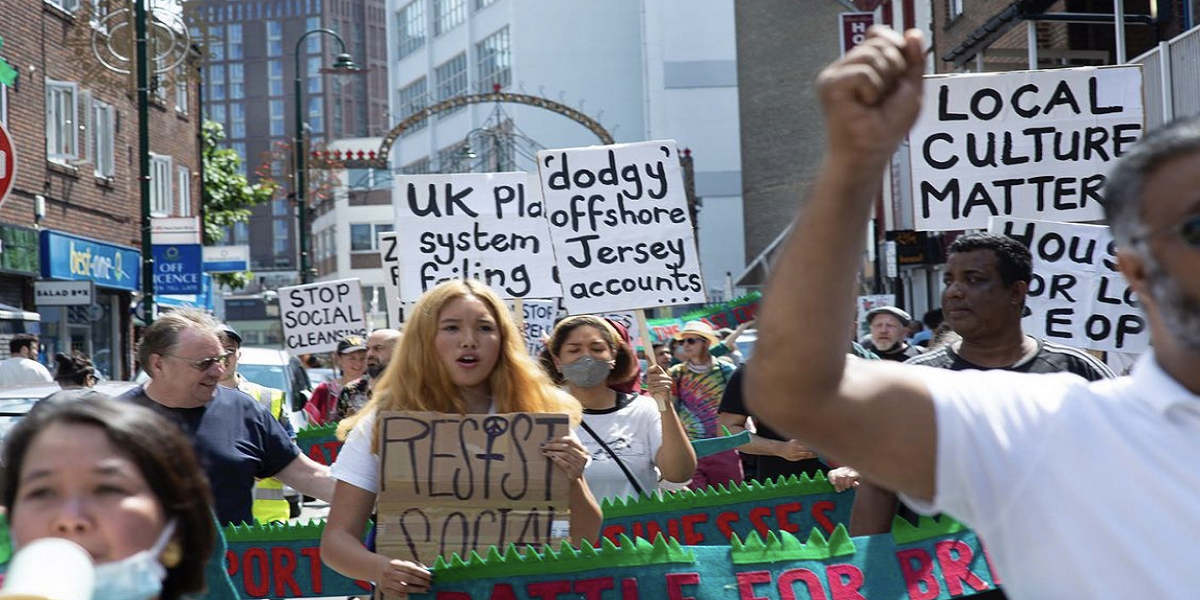Since Lutfur Rahman’s party, Aspire, swept Tower Hamlets (TH) Council in May, TH Labour Party has repeatedly, and quite unimaginatively, accused Aspire of sexism because of the low number of women candidates they put forward for elections, none of whom were elected.
Of course, Aspire can certainly be criticised for their decisions around women candidates. However, given the treatment of women campaigners and representatives by TH Labour, their words ultimately ring hollow and raise much broader issues around the role of women in politics.
While attacks are levelled against the likes of Aspire on the question of women’s representation, the more expansive issue of the conditions in which women can engage in politics is excluded from the conversation. While TH Labour can attempt to claim the high ground on account of having more women councillors, far too little attention is paid to the way that their members aggressively engineer the conditions that make political life for independent women impossible.
Co-opting ‘Save Brick Lane’
I should know. I have experienced firsthand these attacks through my role as a community organiser for the last six years and having led on the Save Brick Lane (SBL) campaign in TH since 2020.
In that time I have seen TH Labour members and representatives continuously target truly independent projects, be it Save Brick Lane or Aspire, with particular ferocity. Both projects stand out for being independent of the Labour Party, enjoying solid grassroots support while also offering more substantive critiques of local government policy, from the left, in a largely working class borough blighted by neglect and poverty.
I myself have been on the receiving end of constant hostility from current and former local Labour councillors due to my involvement in the SBL coalition and Nijjor Manush, one of the groups in the coalition. In particular, I noticed how support from certain individuals and groups quickly faded once it became clear that myself, the coalition and Nijjor Manush were resolute in being independent of any party, and in not allowing ourselves to be used for party political motives.
This pattern of behaviour speaks to the way that the Labour Party operates across the country in working class, majority non-white areas like Tower Hamlets. In those areas, they treat non-white communities as endless one-way vote banks despite offering little in return, and do so by monopolising social and political life. They do this namely through their patronage networks of ‘community representatives’, by absorbing and burying campaigns or worming their way into independent organisations. Organisations and campaigns that defy these tactics are seen as existential threats to Labour’s monopoly, and where their standard tactics of co-option don’t work they are more than happy to exert any and all strategies to rein in and discipline those groups.
We can see this most vividly in the context of TH, where those who find themselves in the firing line stretch from the SBL campaign to one of Labour’s own MPs, Apsana Begum, who has been on the receiving end of coordinated attacks and is currently subject to a trigger ballot driven by allegations of rule-breaking and impropriety.
An internal attack
These examples indicate that anything that seems to offer an alternative for local people is deemed a threat – whether that be an independent campaign, an independent party or an independent-minded MP, namely one of Labour’s few remaining socialist MPs.
What high ground can TH Labour truly claim after their disgraceful treatment of Apsana – her abusive ex-husband still being connected to the Party, the council taking her to court, briefings against her, Labour members coordinating her deselection, pushing her to take medical leave – all either led by Party members, or to which the Party has turned a blind eye?
What this really underscores is the fact that TH Labour Party do not truly care about women in politics – but rather about supporting a specific type of woman in politics, and only on their own terms.
The façade crumbles
In light of this, their accusations of misogyny on the part of Lutfur Rahman’s Aspire Party seem even more insidious. One cannot shake the idea that part of the reason they are pursuing this issue to this degree is because few things get liberal society more riled up than the notion of women-hating Bangladeshi men running the show.
This certainly would not be beneath the Labour Party. One need only look at the way that the Labour and Conservative parties worked hand-in-glove to bring down Lutfur Rahman following his 2014 re-election. Both parties indulged in and fanned crude Islamophobic media caricatures of Rahman and the borough. Time and again, it is on the question of non-white communities – particularly Muslim ones – where Labour’s social justice façade falls apart, and their talk of diverse communities and women in politics belie their contempt for either when outside of their control.
In order to challenge this state of affairs, we need engaged community organisation, ambitious political projects, and a focus on improving marginalised people’s material conditions and prospects so that they can participate. This is the approach that Rahman, as re-elected TH mayor, has pledged to take, and that I hope is delivered too.
Meanwhile, women of colour in political and organising spaces are continuously harassed and targeted, or used to promote a shallow politics of representation. Labour Tower Hamlets urgently need to step away from this point scoring tactic and fix their house from within. Ensuring that Apsana Begum remains an MP would be a good start. As Thomas Sankara said, ‘there is no true social revolution without the liberation of women’.











